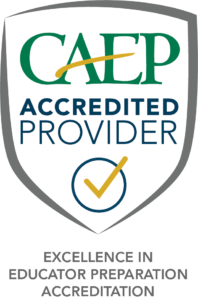Internship Information
For current interns, please go to the COE Student Internship Canvas Page for more specific information.
How is the internship structured?
During a full-time internship, student interns are in the classroom every day for the teacher contract hours, following the school division calendar for the 15-week semester. This is the culminating clinical practice experience. Throughout the internship, student interns gradually assume full responsibility for their teaching assignments under the guidance of school-based and university-based teacher educators, using a gradual release model.
Evaluation Forms
- Internship Evaluation Form
- Professional Competencies Form
Impact Study
The impact study is a culminating assessment for interns. It is designed to showcase one’s skills in instructional design for a particular context, including alignment of SOLs, objectives, and assessment. Furthermore, the impact study demonstrates the intern’s impact on students as a result of his or her teaching. It is made up of a demographic profile, an instructional unit, pre- and post-assessments, student data on those assessments, and a reflection.
Under the direction of a mentor teacher and with guidance from a university supervisor, the intern will select a unit or a portion of a unit to be taught for the impact study. The design of the impact study will provide evidence of the ability to plan, implement, and evaluate a unit designed to meet the needs of a group of learners in a school setting. The intern will also reflect on designing and implementing the impact study to promote ongoing professional growth and development.
The instructional purpose of the unit, the content of the unit, the duration of the unit, the plan for pre- and post-assessment, the lesson plan format, and the implementation schedule will be determined collaboratively by the intern, the mentor teacher, and the university supervisor.
The Impact Study is divided into four categories.
- Demographic Profile –
The candidate has knowledge of the socio-cultural context of the community, school, and classroom and understanding of how the context influences learners and the learning environment.
- Unit Plan –
The candidate identifies measurable learning objectives, aligned with the Virginia Standards of Learning, for instruction based on formative and summative assessment data, prior learner knowledge, and learner interest.
The candidate designs a plan that evaluates all learning objectives and includes both formative and summative assessments.
The plan includes pre-and post-assessment of student knowledge to make instructional decisions.
- Data Analysis –
The analysis of the data is fully aligned with learning goals providing a comprehensive profile of student learning for the whole class including the use of data charts for interpreting data for individual students and groups of students.
The analysis of student learning includes evidence of the impact on student learning toward each learning goal using learner data.
- Reflection –
Effective Instruction – The candidate connects learning goals, instruction, and assessment results in the discussion of student learning and effective instruction.
Future Practice – The candidate’s interpretation is meaningful, and appropriate conclusions are drawn from the data by identifying discrepancies between what was intended and what occurred, acknowledges what worked and what didn’t as well as defining how to apply what was learned to future instruction.
Due to Family Educational Rights and Privacy Act (FERPA) guidelines, you may not publish your Impact Study in any form. This includes, but is not limited to , your social media, any blog, email, etc. We have to protect the privacy of students.
Kristina Peck, M.A.
Director of Clinical Experiences
Phone: (540) 654-1351
Email: kpeck@umw.edu
Seacobeck Hall, Room 207
